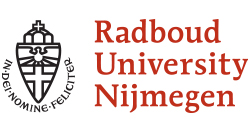Taco Brandsen is Professor of Comparative Public Administration at Radboud University Nijmegen and will be the leader of the Dutch team. He received master degrees in Public Administration and in English Literature from Leiden University and a PhD in Public Administration from Twente University, for which he won the Van Poelje Award for the best dissertation on public administration in The Netherlands.
He is a board member of the European Group of Public Administration (EGPA), the International Research Society on Public Management (IRSPM), the EMES Research Network and the Dutch Association for Public Administration. In September 2015 he took over the editorship of Voluntas, the official journal of the International Society for Third-Sector Research (ISTR), together with TSI member Ruth Simsa.
His research has focused on public service delivery and the issues that come with it: how new governance structures are emerging; how innovative types of services are being developed; how citizens are involved through co-production and self-organisation.
Relevant Publications
- Pestoff V. and T. Brandsen (2007) Co-production: The Third Sector and the Delivery of Public Services. London and New York: Routledge.
Public management research has in recent years paid increasing attention to the third sector, especially to its role in the provision of public services. This book aims to enhance the understanding of what happens when the third sector is drawn into public service provision. The authors also introduce the concepts of co-production, co-management and co-governance as a conceptual framework that enables us to better understand such developments.
- Brandsen, T. P. Dekker and A. Evers (eds.) (2010) Civicness in the Governance and Delivery of Social Services. Baden-Baden: Nomos.
The market, the state and the third sector have all been heralded as the guardians of civilization. However, the voluntary sector can be a source of particularism; the market of exploitation; the state of oppression. This book, which brings together authors from across Europe, argues that such sector perspectives should be left aside and examines how civil behaviour can be identified and encouraged in any institutional setting. Crossing traditional spheres and disciplines, we explore the concept of ‘civicness’ to search for the source of our modern civil society.
- Pestoff, V., T. Brandsen & B. Verschuere (2012) (eds.) New Public Governance, the Third Sector and Co-Production. Routledge.
Co-production refers to situations in which citizens and the third sector take an active role in the provision of public services. The book brings together empirical studies and theoretical reflections on this phenomenon, from both European and US scholars. It has a preface from Nobel Prize Laureate Elinor Ostrom.
- Evers, A., B. Ewert and T. Brandsen (eds.) (2014) Social Innovations for social cohesion. Transnational patterns and approaches from 20 European cities. Liege: EMES European Research Network.
This book presents recurrent patterns of approaches and instruments in local welfare innovations in 20 cities across Europe. It is based on research carried out within the the framework of the WILCO project, investigating how local welfare systems affect social inequalities and how they favour social cohesion, with a special focus on the missing link between innovations at the local level and their successful transfer to and implementation in other settings.
Projects
Welfare Innovations at the local level in favour of cohesion, WILCO (2010-2014)
The WILCO project examined how social innovations develop in European cities as a response to pressing social problems and how these innovations interact with local welfare systems. It was funded by the European Commission under the 7th European Framework Programme and consisted of a consortium of ten countries and two research networks, headed by Radboud University Nijmegen.
http://www.wilcoproject.eu
Role: Coordinator
Learning in Public Sector Environments, LIPSE (2013-2016)
Funded by the EU’s FP7 framework, the LIPSE project identifies drivers and barriers to succesfull social innovation in the public sector. Through studying social innovation and co-creation practices and processes in 11 European countries and 7 policy sectors, LIPSE will create and disseminate essential knowledge about public innovation.
www.lipse.org
Role: Leader of the RUN team
Third Sector European Policy, TSEP (2001-2005)
TSEP was an international research project funded under the 5th Framework Programme, involving nine European countries and co-ordinated by the London School of Economics. It focused on the role of civil society actors in national and European Union policymaking, and how this affected the links between these levels. My own contribution included work on the National Action Plans for Social Inclusion and Employment, and Services of General Interest.
http://www.kent.ac.uk/tsep/
Role: Participant
Civil Society and New Forms of Govermance, CINEFOGO (2004-2009)
This Network of Excellence funded under the 6th Framework Programme and coordinated by Roskilde University) covered a variety of topics relating to civil society and the third sector.
http://ec.europa.eu/research/social-sciences/projects/325_en.html
Role: Leader of the European PhD Network workpackage




